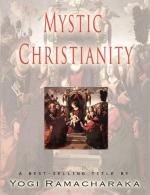“In Origen’s writings we have a mine of information as to the teachings of the early Christians. Origen held a splendid and grandiose view of the whole of the evolution of our system. I put it to you briefly. You can read it in all its carefully, logically-worked-out arguments, if you will have the patience to read his treatise for yourselves. His view, then, was the evolutionary view. He taught that forth from God came all Spirits that exist, all being dowered with free-will; that some of these refused to turn aside from the path of righteousness, and, as a reward, took the place which we speak of as that of the angels; that then there came others who, in the exercise of their free-will, turned aside from the path of deity, and then passed into the human race to recover, by righteous and noble living, the angel condition which they had not been able to preserve; that others, still in the exercise of their free-will, descended still deeper into evil and became evil spirits or devils. So that all these Spirits were originally good; but good by innocence, not by knowledge. And he points out also that angels may become men, and even the evil ones themselves may climb up once more, and become men and angels again. Some of you will remember that one of the doctrines condemned in Origen in later days was that glorious doctrine that, even for the worst of men, redemption and restoration were possible, and that there was no such thing as an eternity of evil in a universe that came from the Eternal Goodness, and would return whence it came.”
And from the writings of this great man we shall now quote.
In his great work “De Principiis,” Origen begins with the statement that only God Himself is fundamentally and by virtue of His essential nature, Good. God is the only Good—the absolute perfect Good. When we consider the lesser stages of Good, we find that the Goodness is derived and acquired, instead of being fundamental and essential. Origen then says that God bestows free-will upon all spirits alike, and that if they do not use the same in the direction of righteousness, then they fall to lower estates “one more rapidly, another more slowly, one in a greater, another in a less degree, each being the cause of his own downfall.”
He refers to John the Baptist being filled with the Holy Ghost in his mother’s womb and says that it is a false notion to imagine “that God fills individuals with His Holy Spirit, and bestows upon them sanctification, not on the grounds of justice and according to their deserts, but undeservedly. And how shall we escape the declaration, ‘Is there respect of persons with God?’ God forbid. Or this, ’Is there unrighteousness with God?’ God forbid this also. For such is the defense of those who maintain that souls come into existence with bodies.” He then shows his belief in re-birth by arguing that John had earned the Divine favor by reason of right-living in a previous incarnation.




